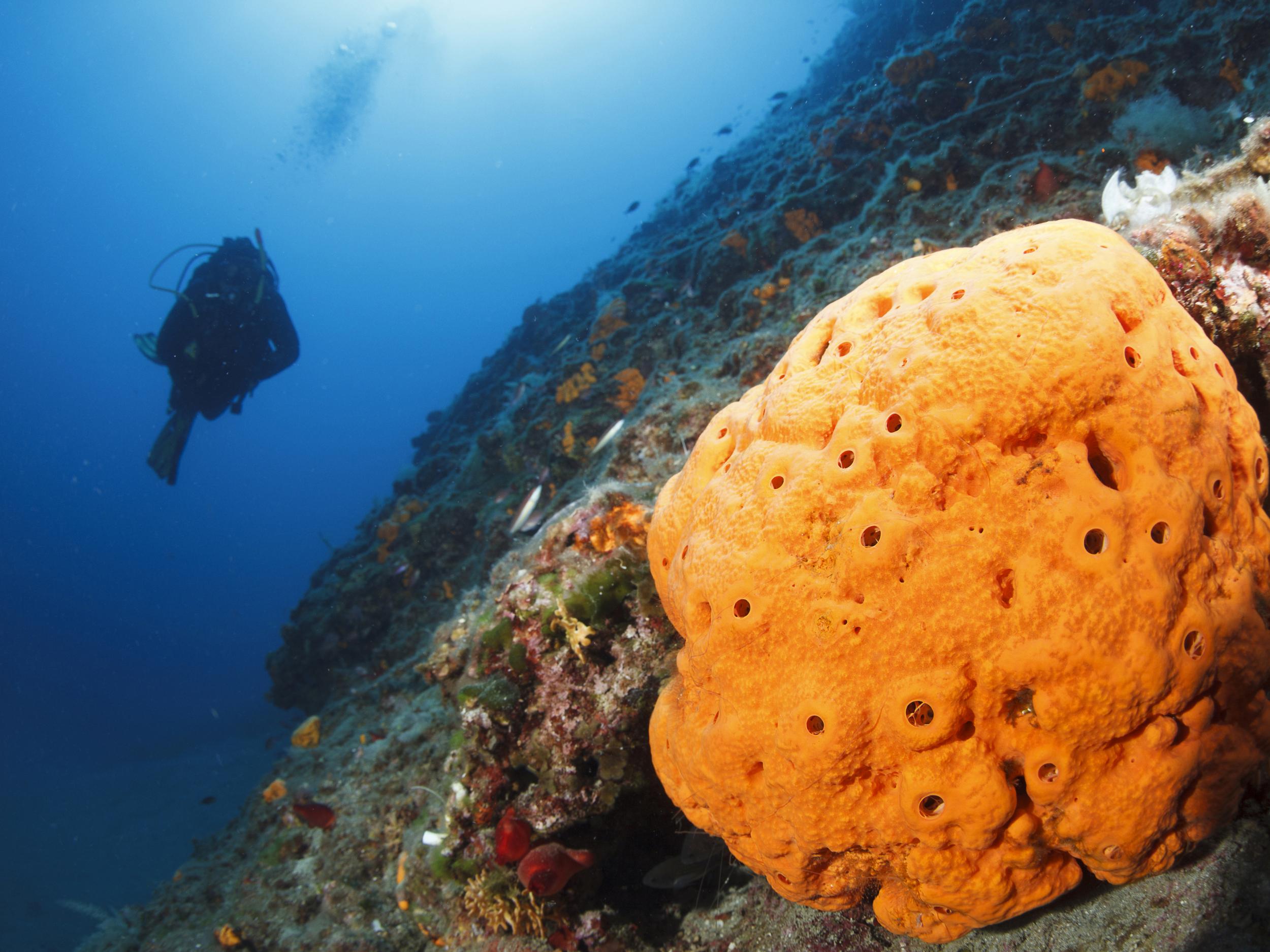The Independent's journalism is supported by our readers. When you purchase through links on our site, we may earn commission.
Sponge-like creatures living 750 million years ago identified as ancestors of humans – and all other animals
Researchers say their statistical analysis is the final word on long-standing debate about the origin of animals

We all descend from sponge-like creatures that lived 750 million years ago, according to new statistical analysis carried out by a team of scientists.
They say their finding ends an ongoing debate in evolutionary biology about the origins of humans and all other animals.
Some scientists have claimed that the “sister group” of animals is not the simple sponges – which lack basic features like muscles and nervous systems – but a relatively complex group of predatory creatures known as comb jellies.
But using cutting-edge statistical techniques, the scientists have deduced that sponges were the first lineage to separate from all the other animals.
These results suggest our ancestors were simple creatures like sponges, feeding by filtering tiny particles from the water.
Though many millions of years have elapsed since our evolutionary split, sponges have changed relatively little since then, so they provide a window into our past.
“Now we are very different from sponges, but at some point back in the past we did share a common ancestor,” said Professor Davide Pisani, co-author of the new paper and researcher at the University of Bristol.
With our own ancestry at stake, this issue has long been a hot topic among evolutionary biologists.
“Hypotheses about whether sponges or comb jellies came first suggest entirely different evolutionary histories for key animal organ systems like the nervous and the digestive systems,” said Professor Davide Pisani.
“Therefore, knowing the correct branching order at the root of the animal tree is fundamental to understanding our own evolution."
Only a few months ago, another paper published in the journal Nature Ecology and Evolution suggested that comb jellies were indeed our evolutionary “sisters”.
“Every single data set up until now has been ‘flip-flopping’, meaning depending on how you analyse it you’ll find one solution or the other, so the data is ambiguous. The question is, if we have ambiguous data, do we have to accept ignorance?” asked Professor Pisani.
Together with his colleagues, Professor Pisani analysed different evolutionary models to explain the “flip-flopping” effect, and in doing so found that the best models favoured sponges.
“The advancement in our paper is that in a sense we refused to accept ignorance,” he said.
While for this team of researchers, their analysis represents the final word on the issue, Professor Pisani acknowledges the pushback from other scientists that has already taken place since their paper was published in the journal Current Biology.
“Will the row end? I doubt it. I think it will take longer, but clearly we have made a significant advancement,” he said.
Join our commenting forum
Join thought-provoking conversations, follow other Independent readers and see their replies
Comments
Bookmark popover
Removed from bookmarks